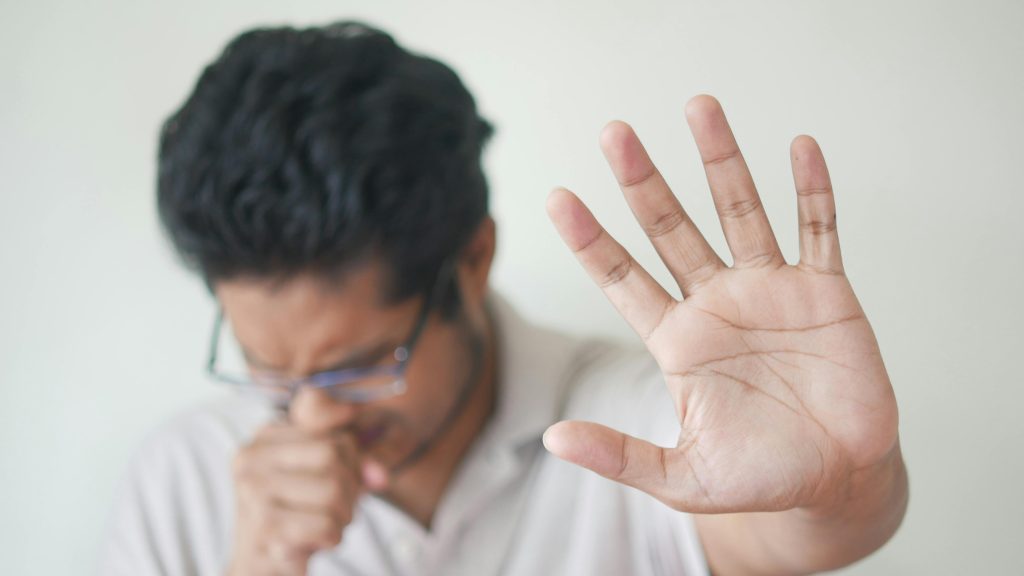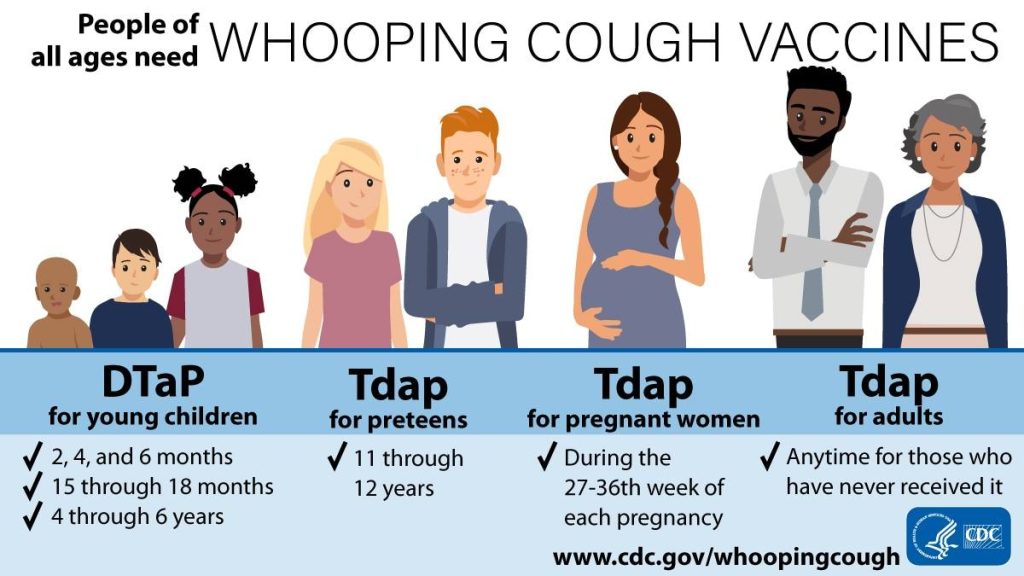Station Selected:
RHINELANDER, Wis. (WXCO) – The Oneida County Health Department says they have one lab-confirmed positive pertussis case reported on July 16th.
Pertussis, also called whooping cough, is a serious illness.
It’s caused by bacteria that attach to the lining of the lungs and can infect people at any age, but it’s most serious in infants and young children.
What is Pertussis / Whooping Cough?
- Pertussis is known for uncontrollable, violent coughing that often makes it hard to breathe. After coughing, someone with pertussis may need to take deep breaths that result in a “whooping” sound. Pertussis can affect people of all ages. However, it can be very serious, even deadly, for babies less than 1 year old.
- Whooping cough can cause pneumonia, which is an infection in the lungs. Half of all babies with whooping cough need care in a hospital. Some even die.
Whooping cough easily spreads from person to person. The bacteria travel through the air on droplets of saliva. The disease can spread to others when an infected person talks, coughs, or sneezes.
Babies who get pertussis are infected by siblings, parents, or caregivers who might not even know they have the disease.
Infected people are most contagious up to about two weeks after the cough begins. Getting treatment may shorten how long you can spread the disease. But if left untreated, infected people can spread this disease up to three weeks after the cough begins.

What is OCHD doing right now?
- OCHD has identified possibly exposed people to the lab-confirmed case and is providing guidance for treatment.
- OCHD is working with local health care providers and agencies involved, providing updates as more information develops.
What do I need to do?
- OCHD encourages people who are sick to stay away from work and activities until symptoms have stopped.
- OCHD advises people who may have come into contact with a pertussis case and develop symptoms of pertussis to see their health care provider for testing and treatment as soon as possible.
- Keep babies and other people at high risk for complications from pertussis away from infected people.
- If you or a member of your household are diagnosed with pertussis, your doctor or local health department may recommend preventive antibiotics for other members of the household. This will help prevent the disease from spreading.
- Practice good hygiene to prevent the spread of all respiratory illnesses, including pertussis. To practice good hygiene you should
- Cover your mouth and nose with a tissue when you cough or sneeze.
- Put your used tissue in the waste basket right away.
- Cough or sneeze into your upper sleeve or elbow, not your hands, if you don’t have a tissue.
- Wash your hands often with soap and water for at least 20 seconds.
- Use an alcohol-based hand rub if soap and water are not available.
More information can be found at www.dhs.wisconsin.gov/immunization/pertussis. Contact the Oneida County Health Department at 715-369-6111 if you have specific questions.
The Wisconsin Department of Health Services says getting vaccinated is the best way to protect yourself and your loved ones against whooping cough. Two different vaccines help protect against whooping cough. Both vaccines also protect against other diseases. Which vaccine you get depends on your age:
- Diphtheria, tetanus, and pertussis (DTaP) vaccine is used for children younger than 7 years old.
- Tetanus, diphtheria, and pertussis (Tdap) vaccine is used for older children and adults.
The CDC (Centers for Disease Control and Prevention) recommends whooping cough vaccines for everyone, but especially:
- All babies and children.
- Preteens and teens.
- Pregnant women.
- Adults who never received the vaccine.
Children need to get all shots in the series to be fully protected. Find out if you and your children are protected against whooping cough. Check the DHS Wisconsin Immunization Registry.
If you’re worried about cost, your family may be eligible for free vaccines. Read about our Vaccines For Children and Vaccines For Adults programs.


